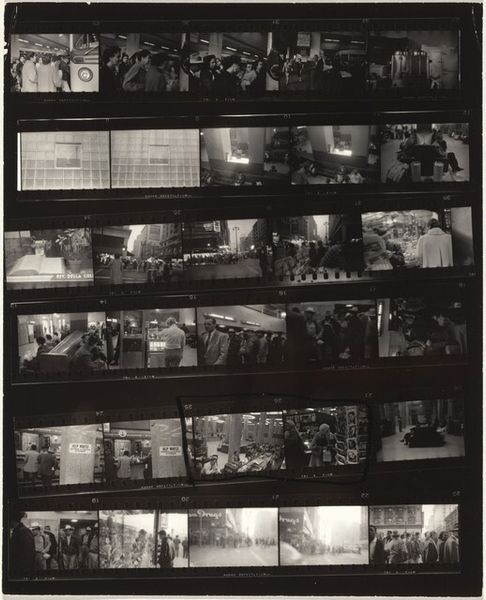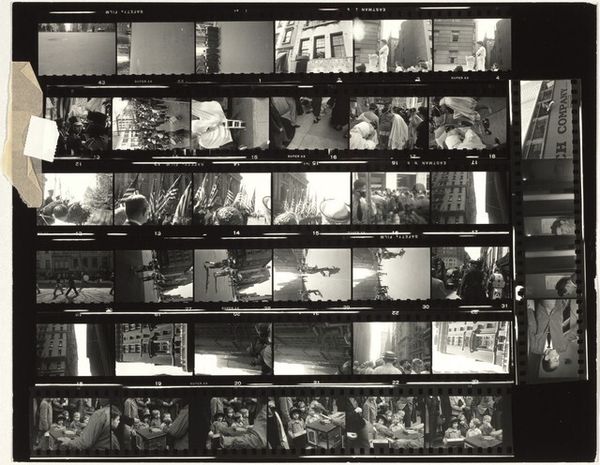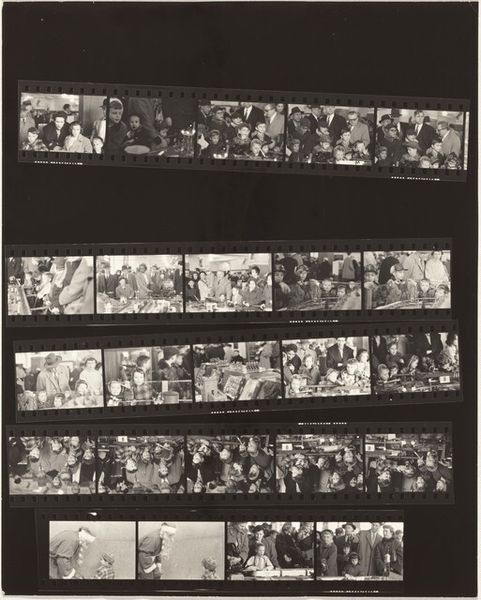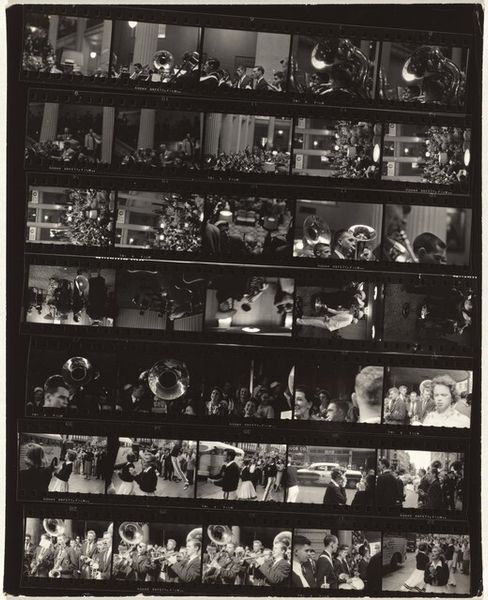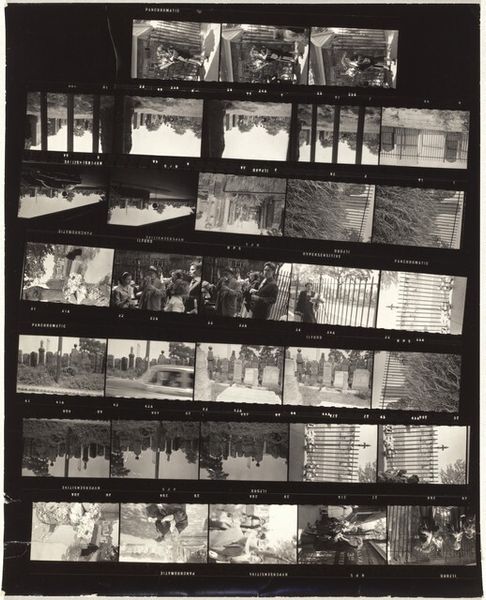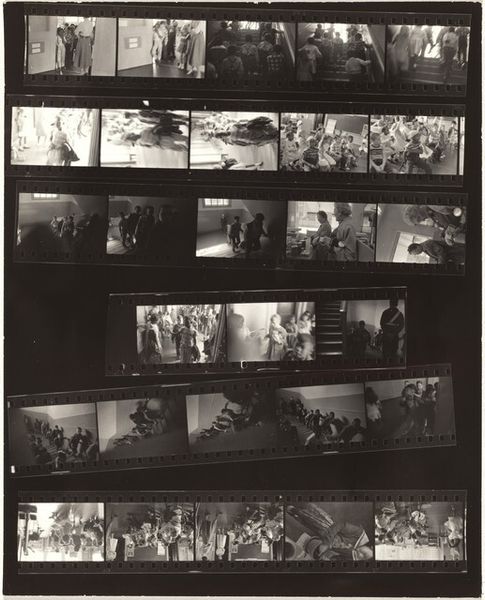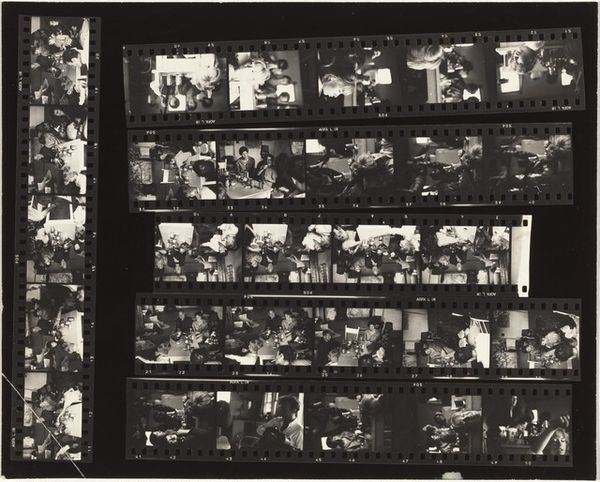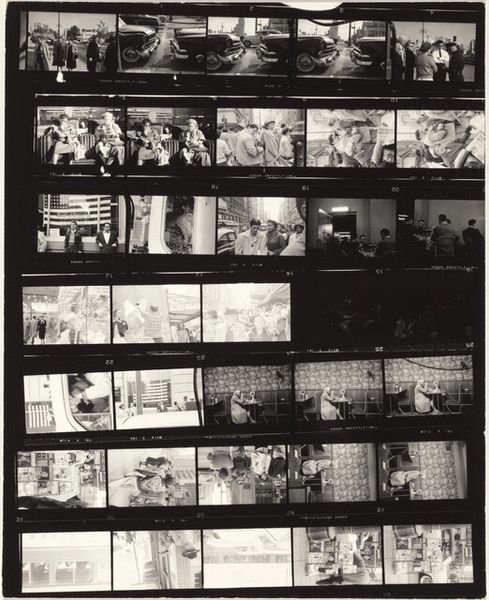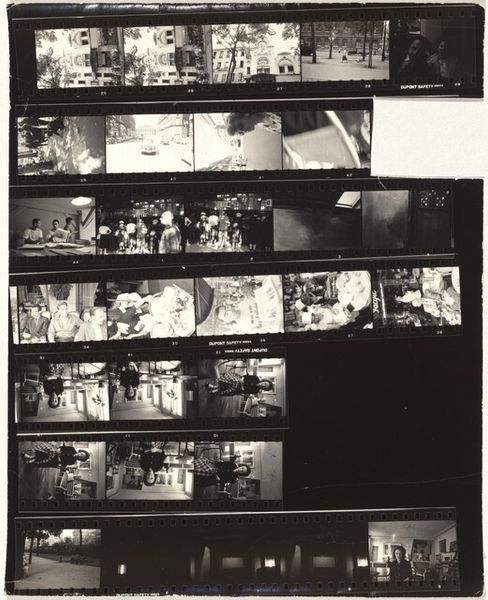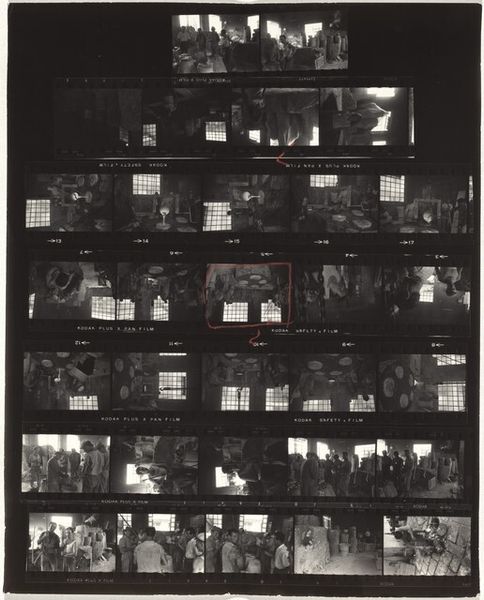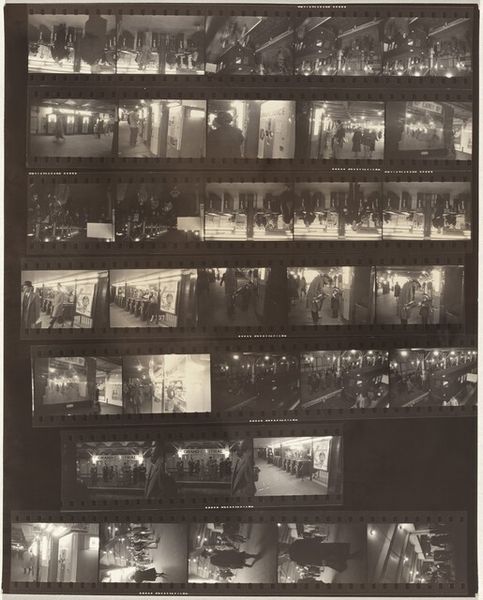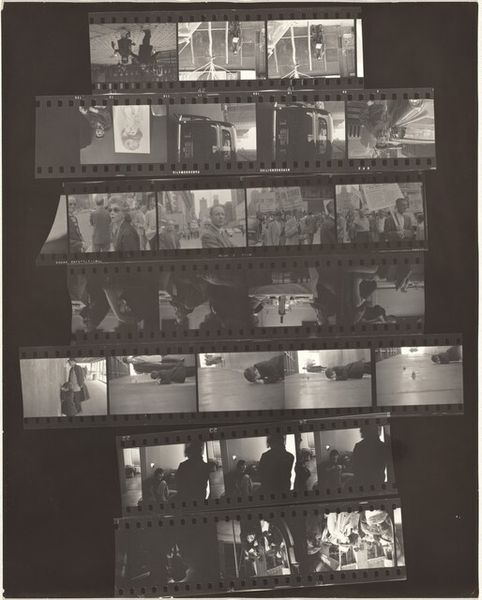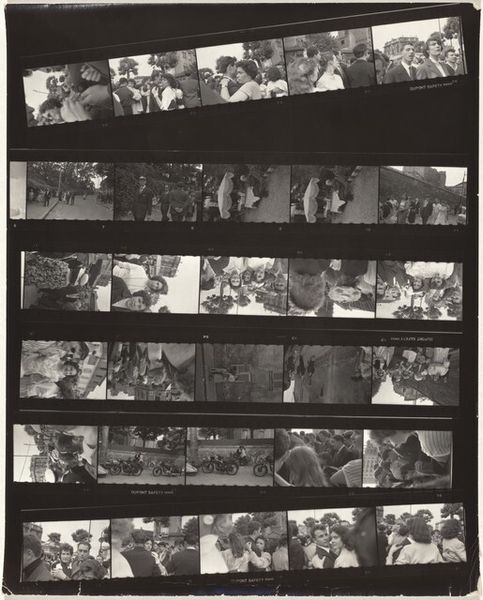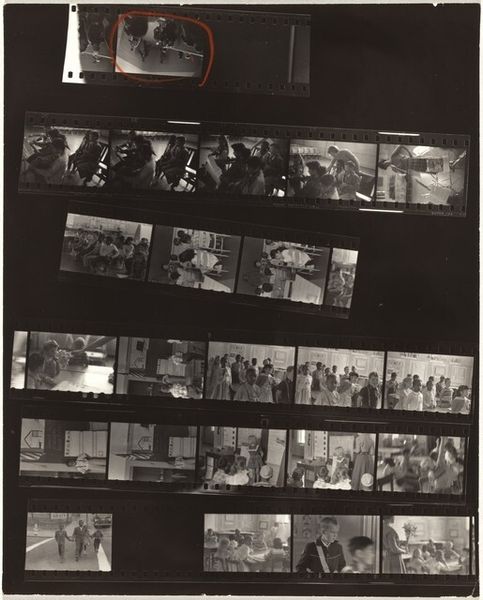
photography, gelatin-silver-print
#
film photography
#
archive photography
#
street-photography
#
photography
#
gelatin-silver-print
#
monochrome photography
#
film
#
monochrome
Dimensions: overall: 25.4 x 20.4 cm (10 x 8 1/16 in.)
Copyright: National Gallery of Art: CC0 1.0
Curator: Robert Frank's gelatin silver print, "Guggenheim 649B--Elementary school, San Francisco," circa 1956, presents us with multiple frames of film. It's like peering into fragmented memories. Editor: There’s a sense of quiet observation about it, wouldn’t you say? Stark and intimate, like he’s captured candid moments within this school, and there’s something unsettling about that much unprotected access to children. Curator: Yes, "unsettling" captures it. Film strips, traditionally used to develop narratives sequentially, are laid out like cryptic timelines here. Each segment offers a small vignette—children in class, in the hallways, engaged in daily rituals—yet without the whole picture, these images create unease. It evokes the fragmentary nature of institutional memory. Editor: That tension, to me, speaks to the complexities of American social structures, particularly the post-war period that this was taken in. Schools were the places in which social roles and race relations were often tested, performed and reinforced. Curator: And notice the predominance of dark and light. The high contrast, typical of Frank's style, seems to emphasize stark realities. Light filters through windows in several strips as though signifying awareness and knowledge while the darkness suggests the unknown, the fears perhaps. It's like an allegory played out on celluloid. Editor: Absolutely, that sharp contrast throws a hard light on societal inequalities that affect these young lives even inside a supposedly nurturing space like a school. Who has access to this so-called light of opportunity? Who remains in shadow? Curator: Frank's deliberate choice of monochrome amplifies this duality. It strips away distractions and encourages deeper reflections on the core dynamics present within those settings. Editor: Right. It avoids any visual frills or colorblind utopian visions, so we cannot avoid facing the black and white reality that Frank seemed so intent on revealing in his work. Curator: Thinking about that now has me considering the idea that our memories are like film, a series of moments that only partially capture time. Editor: I agree. It forces us to confront our own complicity in these institutions and systems of power as well. A difficult but necessary piece for us all.
Comments
No comments
Be the first to comment and join the conversation on the ultimate creative platform.
